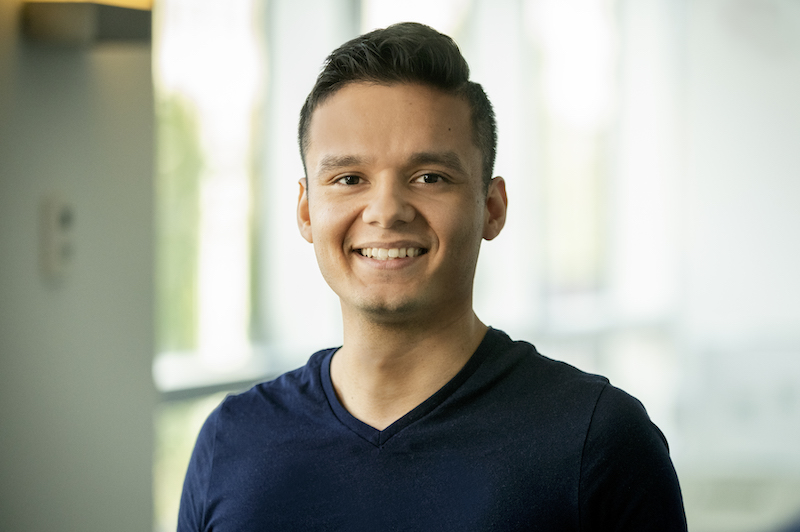Leonardo Torres
PhD Student

Education
- BS in Mathematics, Pontificia Universidad Católica del Perú
About Me
- Hometown: Lima, Perú
- Field of Study: Network Science
- PhD Advisor: Tina Eliassi-Rad
Biography
Leonardo "Leo" Torres is a PhD student at Northeastern University's Khoury College of Computer Sciences, advised by Professor Tina Eliassi-Rad. Leo has a BS in Mathematics from Pontificia Universidad Católica del Perú, and he is a self-taught programmer. He was a Research Programmer at Wolfram Research South America, and he has attended the Recurse Center, a programmer's retreat, to focus on algorithm design and code writing standards. His main areas of research are Data Science, Machine Learning, and Network Science, and he is interested in combining models and theory with learning and data mining. His research is currently focused on introducing novel mathematical tools to network science.
What are the specifics of your graduate education (thus far)?
I have a BS in Mathematics from Pontificia Universidad Católica del Perú, and I am a self-taught programmer. I have taught mathematics (analysis and calculus, in Perú) and Spanish (in the U.S.A.) at the undergraduate level. I was a Research Programmer at Wolfram Research South America. I have attended the Recurse Center, a programmer's retreat, to focus on algorithm design and code writing standards.
What are your research interests in a bit more detail? Is your current academic/research path what you always had in mind for yourself, or has it evolved somewhat? If so, how/why?
I am broadly interested in the intersection of Network Science, Complexity Science, and Mathematics. In my research, I hold in high regard both understanding (through models and theory), and computing (through learning and mining). Thus, I study the principles underlying complex networks by using different fields of mathematics, such as differential and metric geometry, and algebraic topology; and different computational approaches such as graph mining and machine learning. Currently, the main objective of my research is to introduce novel mathematical tools to the network science toolbox, and design efficient algorithms around them to uncover previously unknown features of networks.
What’s one problem you’d like to solve with your research/work?
I would like to find graph embeddings on metric spaces where the geometric properties of the space can be translated into properties of the network.
What aspect of what you do is most interesting/fascinating to you? What aspects of your research (findings, angles, problems you’re solving) might surprise others?
What is most fascinating to me is what has been called "the unreasonable effectiveness of mathematics". Why should mathematics be a useful tool to describe the universe of complex networks?
What are your research/career goals, going forward?
I aim to become a research scientist in complex networks.
Where did you grow up/spend the most defining years of your childhood/young adulthood?
Lima, Perú.